Futures Literacy for Cultural Relevance and Organizational Leadership
Global Innovation Leadership Program
May 18, 20, 25, and 27, 2021
The Global Innovation Leadership Program is a program that fills a critical gap for mid-career technology executives who aspire to lead break-through research and innovation in their organizations. In this program for researchers in mediaX member organizations, mediaX provides a unique opportunity to learn from leading scholars from Stanford and affiliated organizations, along with inspired innovators from our member community.
How might we imagine the future? That we might be confident enough to innovate radically in changes that invest in tomorrow’s sustainable well-being and prosperity.
The topic of the 2021 GILP workshop is one that is on many agendas today – the future. But with a difference – our focus is action-oriented on NOW, involving a mindset and methodology that foregrounds anticipation and imagines alternative futures, using “the future now” in ways that create possibilities of the changes we want to happen. Drawing on the tool kit of design foresight, the workshop is about Futures Literacy.
Futures Literacy is the universally accessible skill set that builds on our innate human capacity to imagine better futures and to develop our capacity to discern and make sense of the changing complexity around us. It is the skill set that allows people to better understand the role of the future in what they see and do. In this workshop we will explore how to foster a mindset and culture for developing fluency with Futures Literacy in personal and organizational contexts. Futures Literacy is the name given to a major UNESCO initiative – a sign of the growing importance of this umbrella concept.
Each day of the program features hands-on sessions, TED-style talks. Group activities run through multiple learning modes. We will use online collaborative media, including a virtual world with participant avatars. Four themes in a Futures Literacy mindset will be outlined: People, Process, Performance, and Potential.
Under these themes, the workshop will explore four particular ways of mobilizing Futures Literacy:
*Four Horizon Modeling – expanding on a classic strategy framework originally introduced by McKinsey decades ago, the Four Horizon Model helps leaders and teams to think about the future of their organization in terms of planning across four time horizons simultaneously.
*World-building – drawn from science fiction writing, worldbuilding is the process of constructing an imaginary world, sometimes an entire fictional universe. Worldbuilding techniques may be applied to business goals and other contexts as a way to explore new narratives and discuss implications of future scenarios.”
*Facilitating psychological safety – a shared belief within teams whose members feel comfortable voicing their opinions and talking about mistakes without fear of negatively affecting one’s self-image, status or career. Research shows that the highest performing teams experience psychological safety, and are most likely to deliver sustainable creativity.
*Behavioral nudges – unlike more direct interventions, such as education or enforcement, nudges is a concept drawn from behavioral economics, political theory, and behavioral sciences that uses positive reinforcement and indirect suggestions to influence decision making of groups or individuals. This kind of flexible adaptation is well suited to navigating complex uncertainty.
With a unique combination of Scholars and Practitioners from Stanford’s deep strengths in the human-technology intersection, and in a virtual collaboration setting with hands-on teamwork, we will tackle case studies to learn new research methodologies and tools by embodying them in practice.
Participants will leave the program with a deep and broad understanding of this foundation for innovation, as well as a hands-on toolbox filled with critical analysis and systems thinking skills that can be applied to other complex problems. Participants will also take away a deeper self-awareness of leadership strengths, weaknesses and growth areas, as well as a network of experienced colleagues.
The program is specifically designed for the busy executive, and for this reason the workshop is organized around multiple sessions over 4 days – to enable participants to maintain continuity with their job responsibilities.
Workshop outcomes. Participants can expect the following.
*Exposure to key features of Futures Literacy as a mindset and toolkit complementary to researching and thinking about innovation systems and transformative innovation.
*Participation in two exercises designed to highlight and practice Futures Literacy.
*An opportunity to network with colleagues who also seek to improve their competency in delivering innovation.
Registration:
Registration is open to employees of mediaX member companies and to Stanford faculty and advanced students.
Please email Addy Dawes to confirm your eligibility for this workshop.
Presenters
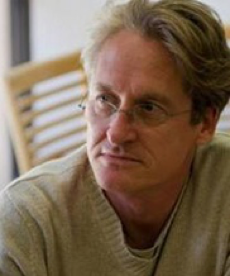
Michael Shanks is a Professor of Classics at Stanford University. He does what most people associate with archaeology – dig up the past — and he is part of the team excavating the Roman town of Binchester in the north of England. His expertise in ancient Greece and Rome is also the basis for his interest in all manner of archaeological themes, including the history of design, long-term patterns in history, and heritage. Shanks is also a senior faculty member of the Hasso Plattner Institute of Design at Stanford University, where he champions history and memory in enlightened design thinking and practice.
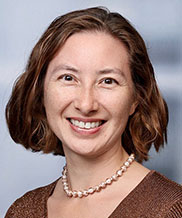
Tamara Carleton, PhD, is a world-renowned executive, educator, researcher, and thought leader focused on building innovative, impactful organizations. She is the CEO and founder of Innovation Leadership Group LLC and lead author of the Playbook for Strategic Foresight and Innovation, a hands-on guide that has been used by hundreds of teams to be more innovative. Dr. Carleton is an International Online Professor in Innovation & Entrepreneurship at Tecnológico de Monterrey’s EGADE Business School in Mexico, the #1 business school in Latin America; a Lecturer of Management at the University of St. Gallen in Switzerland, one of the top five European business schools; and a Visiting Professor in Design at the Osaka Institute of Technology, a private university in Japan. She is one of the few international experts that has studied DARPA’s model of radical innovation. She holds a doctorate in mechanical engineering from Stanford University.
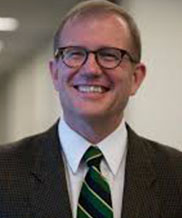
Brian Pierce is a master innovator and strategist in cutting-edge technologies. He is the former Director and Deputy Director of the Information Innovation Office at the Defense Advanced Research Projects Agency (DARPA) from 2014 to 2019. During this time, he developed and implemented the strategy of I2O, and drove advances in AI, data analytics and cyber in over 75 DARPA programs. The thrust of his work in AI was framed within the context of human-machine symbiosis, where machines partner with humans rather than serve merely as tools. The second thrust focused on analytical technologies rapidly transforming data and information into effective courses of action for conflict resolution, stabilization, and other complex challenges. The cyber thrust concentrated on technologies to help enable the deterrence of cyber threats to national security. Brian speaks on these topics at conferences and events worldwide. Brian brings over 35 years of experience developing breakthrough technologies over a career spanning DARPA and the aerospace/defense industry.
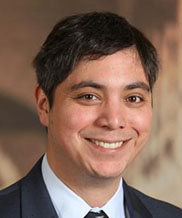
Antero Garcia is an Assistant Professor in the Stanford Graduate School of Education. He studies how technology and gaming shape youth learning, literacy practices, and civic identities. Prior to completing his Ph.D., Antero was an English teacher at a public high school in South Central Los Angeles. His two most recent research studies explore learning and literacies in tabletop roleplaying games like Dungeons & Dragons and how participatory culture shifts classroom relationships and instruction. Based on his research, Antero co-designed the Critical Design and Gaming School--a public high school in South Central Los Angeles. Antero’s research has appeared in numerous journals including The Harvard Educational Review, Teachers College Record, and Teaching and Teacher Education. Antero received his Ph.D. in the Urban Schooling division of the Graduate School of Education and Information Studies at the University of California, Los Angeles.

Justin Purl is a Senior People Analyst at Google. Through the transition to work from home, he set the research and analysis strategy for Google's ongoing, socialscience research to inform Google-wide policy. Along with his colleague, he received the Society for Industrial/Organizational Psychology's (SIOP) 2021 Wiley Award for Excellence in Survey Research. He is also passionate about using advanced analytics to better inform decision makers, such as using survival analysis for workforce planning (McCloy, Purl, & Banjanovic, 2019).
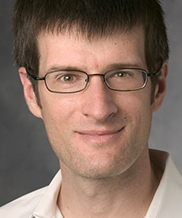
Chip Heath is the Thrive Foundation for Youth Professor of Organizational Behavior, Emeritus in the Stanford Graduate School of Business. His research examines why certain ideas - ranging from urban legends to folk medical cures, from Chicken Soup for the Soul stories to business strategy myths — survive and prosper in the social marketplace of ideas. A few years back Chip designed a course, now a popular elective at Stanford, that asked whether it would be possible to use the principles of naturally sticky ideas to design messages that would be more effective. The material from that course, How to Make Ideas Stick, has been taught to hundreds of students including managers, teachers, nonprofit leaders, doctors, journalists, venture capitalists, product designers, and film producers. Chip’s research has appeared in Organizational Behavior and Human Decision Processes, Quarterly Journal of Economics, Cognitive Psychology, Journal of Consumer Behavior, Strategic Management Journal, Psychological Science, and the Journal of Risk and Uncertainty.
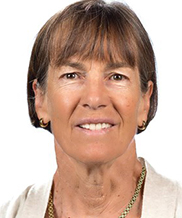
Tara VanDerveer is The Setsuko Ishiyama Director of Women's Basketball and the all-time winningest coach in women's college basketball. Coach VanDerveer has cemented herself as one of the top coaches in the history of the sport, both collegiately and internationally, and is a member of both the Naismith Memorial Basketball Hall of Fame (2011) and the Women’s Basketball Hall of Fame (2002). An ambassador for both Stanford University and the sport of college basketball, VanDerveer has enjoyed an unprecedented level of success through an energetic and positive approach to the game. The 2020-21 season was a momentous one for VanDerveer, as she led the Cardinal back atop the collegiate mountaintop, all while constantly adapting to unprecedented change due to the global pandemic. On December 15, 2021, she became the sport's winningest coach, breaking Tennessee's Pat Summitt's mark of 1,098. Stanford finished the year 31-2, winning both the Pac-12 regular season and tournament championships, earning the No. 1 overall seed in the NCAA Tournament and claimed the national championship for the first time since 1992.
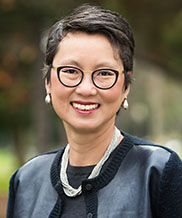
Van Ton Quinlivan is a nationally recognized thought leader in workforce development. She has a proven record for guiding and implementing large system change while fostering a culture of experimentation, innovation and collaboration. Her distinguished career spans the public, private, and non-profit sectors. Van is CEO of Futuro Health, whose mission is to improve the health and wealth of communities by growing the largest network of credentialed allied healthcare workers in the nation. Van previously served as executive vice chancellor for the California Community Colleges, the nation’s largest system of higher education, and grew public investment in workforce programs from $100 million to over $1 billion during her tenure. In 2013, Van was named a White House Champion of Change under the Obama Administration in recognition of her notable career in industry, education and service as a community leader. She received the California Steward Leader Award in 2017 for her dedication to collaboration and work to align public, private, and civic sector leaders in support of economic and social mobility for state residents. In 2019, Ton-Quinlivan was named a mediaX distinguished visiting scholar by Stanford University.